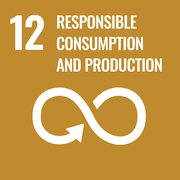
A Second Life for Urban Waste
On Wednesday, December 11 at 9:30, the “Complesso Monumentale” (Piazza di San Salvatore in Lauro) hosted the presentation of the results of Project Res Urbis (RESources from URban BIo-waSte). The project, which was started in 2017 in the labs of the Sapienza Research Centre for Applied Science for the Protection of the Environment and Cultural Heritage (CIABC) to profitably recycle organic waste, has become a European example for the circular economy.
Over the course of three years, Res Urbis has developed, under the guidance of Coordinator Mauro Majone, an innovative technological system that can easily be integrated into existing plants, and delivers a twofold objective: minimising the quantity of waste that has to be treated and producing new bio and eco-compatible products using waste as renewable resources alternative to oil.
Two pilot plants, fuelled respectively with liquid waste produced from fruit processing and a mixture of sewage extracted from organic solid urban waste, operated non-stop to produce the bioplastics of the future based on Polyhydroxyalkanoates (PHA) like Polyhydroxybutyrate (PHB) and Polyhydroxyvalerate (PHV) and their co-polymer polyhydroxybutyrate-cohydroxyvalerate. These sustainable and biocompatible materials have the same mechanical properties as common plastics but provide a much better alternative.
In particular, urban waste has found a second life in the packaging sector (biodegradable composite films), in the production of durables (computer chasses, tablets and telephones) and environmental recovery (as targeted delivery materials to restore contaminated underground waterbeds.
The technological objective of converting urban organic waste into bio-products through an integrated bio-refinery has been combined with technical and economic analyses of the waste management system and tested in 5 local “clusters” of over 500,000 residents. At the end of the project, the feasibility of the entire Res Urbis chain was proven viable in the 5 areas by examining all the technical and non-technical aspects (economic, legislative, social and environmental). Moreover, a questionnaire was used to survey consumer acceptance of these products and the results revealed a positive acceptance of the products by users.
Started in 2017 with ca. €3 million in funding as part of Programme Horizon 2020, Res Urbis featured the collaboration of various Italian universities and 21 partners (enterprises, associations and public administrations) from 8 European countries as part of a research and development programme aiming to promote the circular economy.
Prof. Mauro Majone explains "At the end of the project, we believe that we have proven, at least on a pilot scale, that it is technically feasible to produce biodegradable polymers from urban organic waste. The process is environmentally and economically sustainable and can be easily integrated into waste treatment systems. The biodegradable plastics produced have a good market potential, even as substitutes for oil-based conventional plastics. In this way, the approach perfectly adheres to the European policies for developing a circular bio-economy.”
